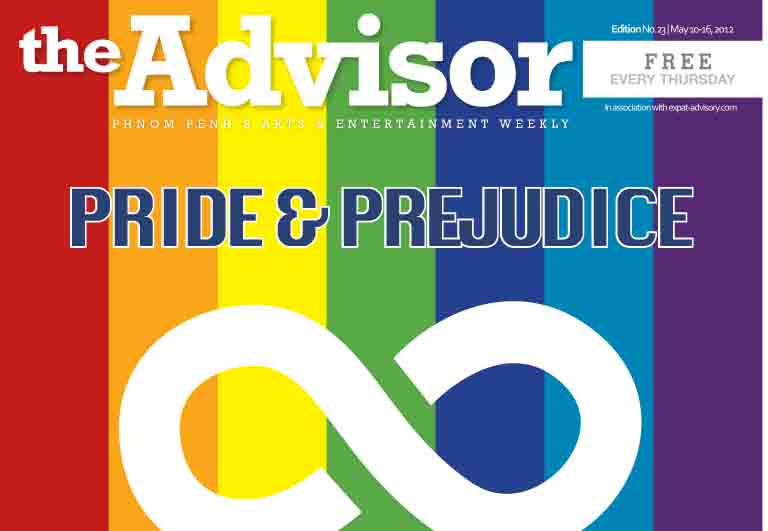Eight years ago, after watching televised footage of gay weddings being conducted in San Francisco, Cambodia’s ageing constitutional monarch did what for many conservative Buddhists would be the unthinkable.
The frail 81-year-old Norodom Sihanouk seated himself at his desk and, with pen in hand, proceeded to map out on paper his personal musings on same-sex marriage. The handwritten note, later posted on the king’s personal website, proved that advancing years are no barrier to an open mind.
As a “liberal democracy”, wrote the now retired king, Cambodia has a duty to allow “marriage between man and man… or between woman and woman”. He acknowledged his respect for the gay community, noting that they were the way they were because God loved “a wide range of tastes”. Transvestites too, Sihanouk urged, “should be accepted and well-treated in our national community”.
Sihanouk’s message stands in stark contrast to a public declaration made by Prime Minister Hun Sen just three years later. During a graduation ceremony in October 2007, the premier – hardly known for his liberal attitude – told students he was “disappointed” that his 19-year-old daughter, who he had adopted in 1988, was a lesbian.
“I have my own problem – my adopted daughter has a wife,” he said in front of more than 3,000 people. “Now I will ask the court to disown her from my family… We sent her to study in the US, but she did a bad job. She returned home and took a wife.” In the same breath, apparently unaware of his own hypocrisy, Hun Sen called on Cambodians to adopt a more tolerant attitude: “I urge parents of gays not to discriminate against them, and do not call them transvestites.”
The prime minister’s most stinging remarks were edited out of official versions of the speech that later aired on state media, but their memory still raises the hackles of more progressive audiences today. Among them is Hem Sokly, a project coordinator with the Cambodian Centre for Human Rights’ (CCHR) sexual orientation and gender identity project, launched in 2010.
Softly spoken and impeccably dressed, this bespectacled, slight-of-build young man (heterosexual himself, although one of his sisters is gay) is one of many squaring up against the prejudices of the past. Via training workshops, outreach programmes, and the novel marketing of a rainbow-coloured krama crafted by a lesbian cooperative in Kompong Som now available at most gay bars in town (“Everyone knows that the rainbow represents diversity. The young generation doesn’t call themselves ‘gay’, they call themselves ‘rainbow’”), Sokly and his colleagues are bent on dragging public and political perception out of the dark ages.
“The first problem many people encounter is discrimination by their own family,” he says, perched on the edge of a plush cream-coloured sofa at 2 Colours, the capital’s newest gay bar, on Street 13. “When a family has a gay son or daughter, other community members may talk badly about them. Once gay people come out, their families often disown them and they become homeless, with no way of supporting themselves. Prime Minister Hun Sen disowned his adopted daughter when she came out as being gay, which sends a very bad message to the general population. Then he called on Cambodian people not to discriminate against the LGBT community, so he’s sending very confusing messages.”
Perhaps nowhere is the message more confused than within Cambodia’s staunchly conservative corridors of power. “Government officials say that now is not the time for Cambodia to think about sexual minorities,” says Sokly. “They say that economic development is the priority for the government, and political stability. They think that we can integrate the study of sexuality into the gender concept because gender works for the equality of everyone, but the word ‘gender’ in Cambodian just means equality between man and woman, so we are not included.”
Fear of exclusion remains all-pervasive, particularly in parliament. According to a CCHR source who has “a strong network in the National Assembly”, at least ten of Cambodia’s 123 members of parliament – including members of the ruling Cambodian People’s Party and the opposition Sam Rainsy Party – are closeted members of the LGBT community. “But because they want to maintain their title, they cannot be open about their sexuality.”
Little wonder, then, that those at the opposite end of the power spectrum are still subject to arbitrary persecution. A case in point is that of 20-year-old former factory worker Phlong Srey Rann, currently serving a five-year sentence in Prey Sar prison for having sex with her girlfriend. Although there are no laws expressly banning homosexuality in Cambodia, the authorities use other legislation – such as anti-human trafficking laws – to discriminate.
It’s for precisely this reason that CCHR, in a new report about to be made public, is lobbying to be heard during drafting of the Asean Declaration on Human Rights. “References to sexual orientation and gender identity were put in the draft by Thailand,” says British-born CCHR volunteer Philip Barron, “but they have since been removed, according to leaked documents, by Malaysia and Singapore. The draft is due to be signed into law later this year, so it’s an extremely pressing issue.”
In the meantime, a little light relief is en route courtesy of Cambodia’s first Asean Pride Week. Between May 12 and 20, art galleries, cinemas, cultural centres, nightspots and temples will play host to upwards of 40 events celebrating sexual diversity. Find the full schedule at www.facebook.com/cambodiapride.
WHO: Everyone
WHAT: Cambodia Asean Pride Week
WHERE: Art galleries, cinemas, night spots and temples
WHEN: May 12 to 20
WHY: You’re proud, not prejudiced
